Featured Resource
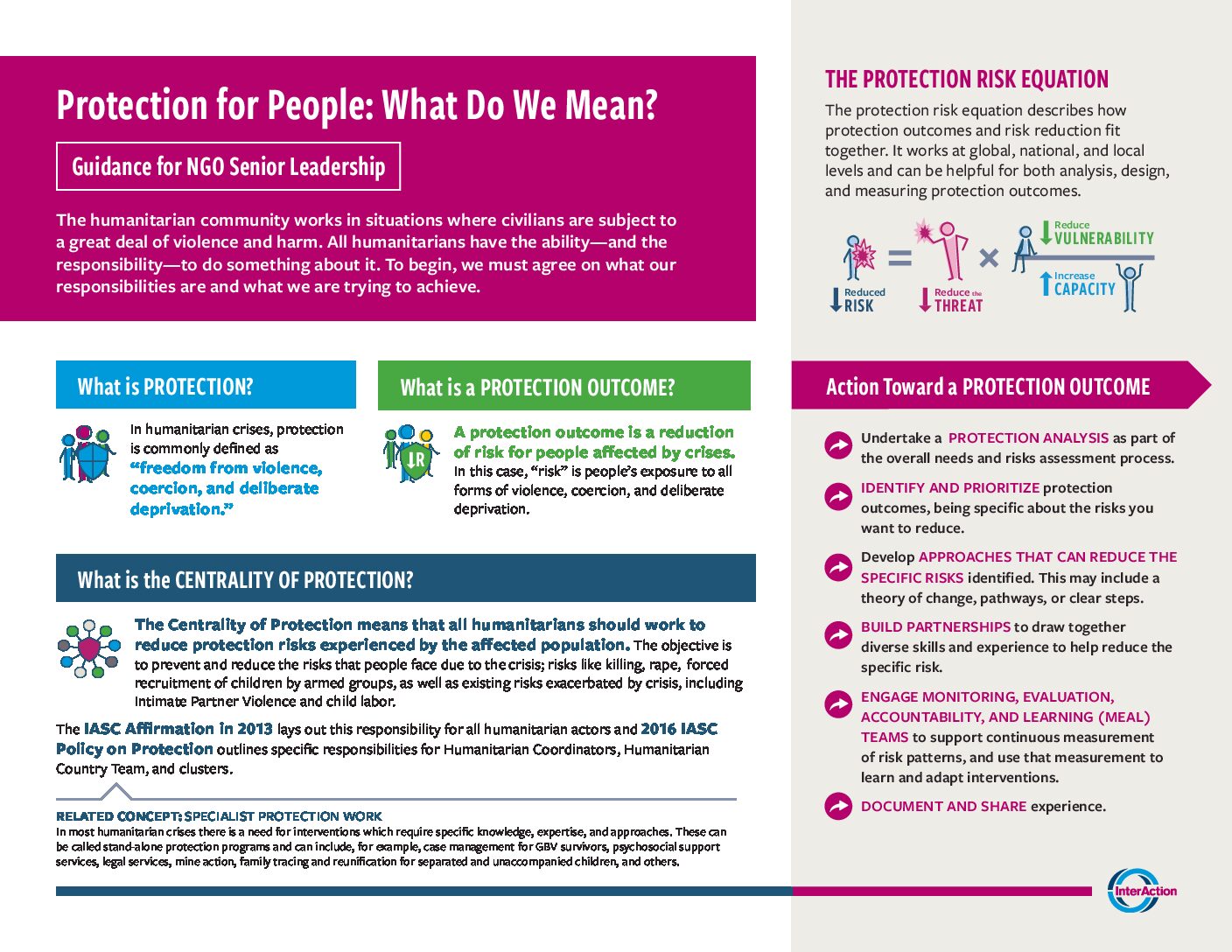 Protection for People: What Do We Mean? Guidance for Senior Leadership
Protection for People: What Do We Mean? Guidance for Senior Leadership

InterAction has published and collected resources including tools, reports, project evaluations, blogposts, and others from Members and partners that promote results-based approaches to protection since 2012; all of which can be found in this resource library. To explore practical case examples of RBP in practice, visit the case example page. Background photo By: Simon Moricz Sabjan is licensed under the CC BY-NC 4.0 license.
Given the COVID-19 pandemic, InterAction’s RBP team answers some questions about its progress and how it envisions carrying out its activities for the remainder of its two-year project called “Strengthening Ways of Working for Protection Outcomes” which is made possible through funding from the Swedish International Development Cooperation Agency (Sida).
This blog reflects on a paper written by Paul Knox Clarke and proposes some gaps in the analysis and areas for further enquiry.
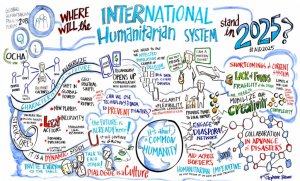
Building off a literature review on the evidence base for collaborating, learning, and adapting (CLA), this blog post focuses on new evidence with implications for CLA. The blog post explores creating an organizational culture that values the application of learning iteratively and adaptive management.
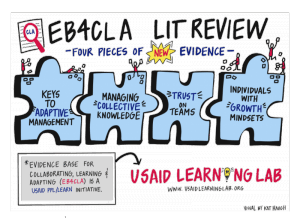
This blog piece features USAID- partner Pact’s collaborating, learning, and adapting (CLA) initiative for designing a multi-stakeholder learning agenda in their orphans and vulnerable children (OVC) portfolio in Tanzania.
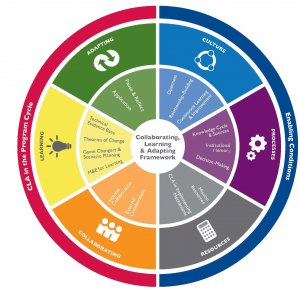
Julian Stodd and his team with the Landscape of Trust research project offer insights into how to build reservoirs of trust between individuals, within communities and team, and into organizations themselves. The initiative seeks to gather evidence and learn more about ‘trust’, develop visualization tools and diagnostics, and present practical approaches and guidance for applying this gathered evidence on trust.
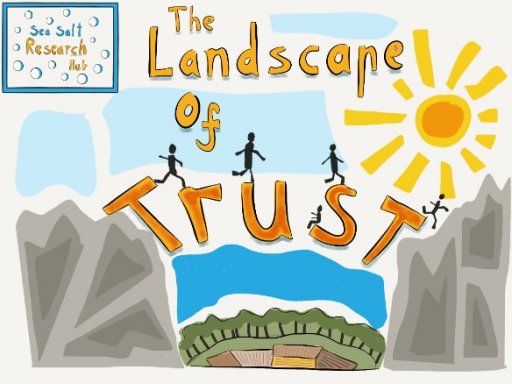
This blog series through USAID’s Learning Lab explores the components of USAID’s Collaborating, Learning, and Adapting (CLA) Framework, including: 1) organizational culture, 2) effective learning, 3) resources for CLA integration, 4) effective collaboration, 5) supportive processes, and 6) adaptive management.
Community-based approaches to protection (CBP) have largely been developed by NGOs in complement to the often more legalistic and state-centric work of mandated protection actors. NGOs have long worked within communities in crisis – including as implementing partners for the major UN agencies – so developing community-based protection work built on their pre-existing strength, experience and networks. Whilst there is anecdotal evidence of its success as an approach it does present some specific challenges in terms of demonstrating results.
This humanitarian value is the starting point of Jeremy Konyndyk’s and Rose Worden’s observation that international humanitarian action is not driven by – or accountable to the people that it exists to serve. In their policy paper published in September 2019, following the convening of an expert workshop in February 2019, by the Center for Global Development (CGD) titled, “People-Driven Response: Power and Participation in Humanitarian Action,” Konyndyk and Worden argue that to uphold such humanitarian value will require deep changes to the humanitarian system’s incentive structures and power dynamics.
To shed light on establishing effective two-way communication between humanitarian actors and affected people, Translators without Borders (TWB) produced a three-part report in September 2019 titled, “Misunderstanding + misinformation = mistrust: How language barriers reduce access to humanitarian services, reduce the quality of those services and aggravate social exclusion for Rohingya communities,” exploring the role of language in humanitarian access and community relations in Cox’s Bazaar and Sittwe.
In September 2019, the Collective Impact Forum (FSG), in partnership with New Profit, held a 60-minute webinar discussion on Examining Power Dynamics in Systems Change to interrogate Power Dynamics and the unique role it plays within the framework of systems change.
"*" indicates required fields